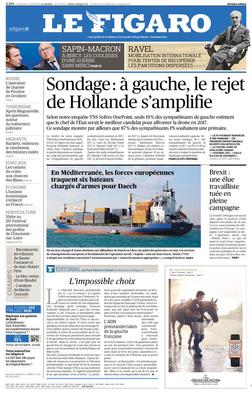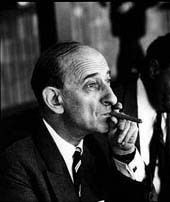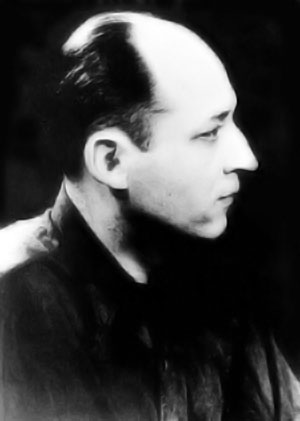
Paris is the capital and largest city of France. With an official estimated population of 2,102,650 residents in January 2023 in an area of more than 105 km2 (41 sq mi), Paris is the fourth-largest city in the European Union and the 30th most densely populated city in the world in 2022. Since the 17th century, Paris has been one of the world's major centres of finance, diplomacy, commerce, culture, fashion, and gastronomy. For its leading role in the arts and sciences, as well as its early and extensive system of street lighting, in the 19th century, it became known as the City of Light.

Charles André Joseph Marie de Gaulle was a French military officer and statesman who led the Free French Forces against Nazi Germany in World War II and chaired the Provisional Government of the French Republic from 1944 to 1946 to restore democracy in France. In 1958, amid the Algerian War, he came out of retirement when appointed Prime Minister by President René Coty. He rewrote the Constitution of France and founded the Fifth Republic after approval by referendum. He was elected President of France later that year, a position he held until his resignation in 1969.

Le Figaro is a French daily morning newspaper founded in 1826. It was named after Figaro, a character in a play by polymath Beaumarchais (1732–1799); one of his lines became the paper's motto: "Without the freedom to criticise, there is no flattering praise".

Raymond Claude Ferdinand Aron was a French philosopher, sociologist, political scientist, historian and journalist, one of France's most prominent thinkers of the 20th century.
Le Nouvel Obs, previously known as L'Obs (2014–2024), Le Nouvel Observateur (1964–2014), France-Observateur (1954–1964), L'Observateur aujourd'hui (1953–1954), and L'Observateur politique, économique et littéraire (1950–1953), is a weekly French news magazine. Based in the 2nd arrondissement of Paris, Le Nouvel Obs is one of the three most prominent French news magazines alongside Le Point and L'Express. Its current editor is Cécile Prieur.

Henri Lefebvre was a French Marxist philosopher and sociologist, best known for pioneering the critique of everyday life, for introducing the concepts of the right to the city and the production of social space, and for his work on dialectical materialism, alienation, and criticism of Stalinism, existentialism, and structuralism. In his prolific career, Lefebvre wrote more than sixty books and three hundred articles. He founded or took part in the founding of several intellectual and academic journals such as Philosophies, La Revue Marxiste, Arguments, Socialisme ou Barbarie, and Espaces et Sociétés.

Léon Joseph Marie Ignace Degrelle was a Belgian Walloon politician and Nazi collaborator. He rose to prominence in Belgium in the 1930s as the leader of the Rexist Party (Rex). During the German occupation of Belgium during World War II, he enlisted in the German army and fought in the Walloon Legion on the Eastern Front. After the collapse of the Nazi regime, Degrelle escaped and went into exile in Francoist Spain, where he remained a prominent figure in neo-Nazi politics.

Sciences Po or Sciences Po Paris, also known as the Paris Institute of Political Studies, is a private and public research university located in Paris, France, that holds the status of grande école and the legal status of grand établissement. The university's undergraduate program is taught on the Paris campus as well as on the decentralized campuses in Dijon, Le Havre, Menton, Nancy, Poitiers and Reims, each with their own academic program focused on a geopolitical part of the world. While Sciences Po historically specialized in political science, it progressively expanded to other social sciences such as economics, law and sociology.

Paris-Panthéon-Assas University, commonly known as Panthéon-Assas or Paris 2, is a university in Paris, often described as the top law school of France. It is considered the direct inheritor of the Faculty of Law of Paris, the second-oldest faculty of Law in the world, founded in the 12th century.

Paris Match is a French-language weekly news magazine. It covers major national and international news along with celebrity lifestyle features. Paris Match has been considered "one of the world's best outlets for photojournalism". Its content quality was compared to the American magazine Life. Paris Match's original slogan was "The weight of words, the shock of photos", which was changed to "Life is a true story" in 2008. Long coveted by Bernard Arnault, the magazine is owned by Vincent Bolloré.

Benjamin Péret was a French poet, Parisian Dadaist, and founder and central member of the French Surrealist movement with his avid use of Surrealist automatism.
Le Point is a French weekly political and conservative news magazine published in Paris. Le Point is one of the three major French news magazines.

La Nouvelle Revue Française is a literary magazine based in France. In France, it is often referred to as the NRF.

France, officially the French Republic, is a country located primarily in Western Europe. Its overseas regions and territories include French Guiana in South America, Saint Pierre and Miquelon in the North Atlantic, the French West Indies, and many islands in Oceania and the Indian Ocean, giving it one of the largest discontiguous exclusive economic zones in the world. Metropolitan France shares borders with Belgium and Luxembourg to the north, Germany to the northeast, Switzerland to the east, Italy and Monaco to the southeast, Andorra and Spain to the south, and a maritime border with the United Kingdom to the northwest. Its metropolitan area extends from the Rhine to the Atlantic Ocean and from the Mediterranean Sea to the English Channel and the North Sea. Its eighteen integral regions span a combined area of 643,801 km2 (248,573 sq mi) and have a total population of 68.4 million as of January 2024. France is a semi-presidential republic with its capital in Paris, the country's largest city and main cultural and commercial centre.

Vichy France, officially the French State, was the French rump state headed by Marshal Philippe Pétain during World War II. It was named after its seat of government, the city of Vichy. Officially independent, but with half of its territory occupied under the harsh terms of the 1940 armistice with Nazi Germany, it adopted a policy of collaboration. Though Paris was nominally its capital, the government established itself in the resort town of Vichy in the unoccupied "free zone", where it remained responsible for the civil administration of France as well as its colonies. The occupation of France by Nazi Germany at first affected only the northern and western portions of the country, but in November 1942 the Germans and Italians occupied the remainder of Metropolitan France, ending any pretence of independence by the Vichy government.
Le Journal de Mickey is a weekly French comics magazine established in 1934, featuring Disney comics from France and around the world. The magazine is currently published by Unique Heritage Media. It is centered on the adventures of Mickey Mouse and other Disney characters but also contains other comics. Le Journal de Mickey is credited with "the birth of the modern bande dessinée". It is now the most popular French weekly magazine for children between 8 and 13 years old.

La Libre Parole or La Libre Parole illustrée was a French antisemitic political newspaper founded in 1892 by journalist and polemicist Édouard Drumont.

Newspapers have played a major role in French politics, economy and society since the 17th century.

The clandestine press of the French Resistance was collectively responsible for printing flyers, broadsheets, newspapers, and even books in secret in France during the German occupation of France in the Second World War. The secret press was used to disseminate the ideas of the French Resistance in cooperation with the Free French, and played an important role in the liberation of France and in the history of French journalism, particularly during the 1944 Freedom of the Press Ordinances.

Antisemitism in France is the expression through words or actions of an ideology of hatred of Jews on French soil.
















